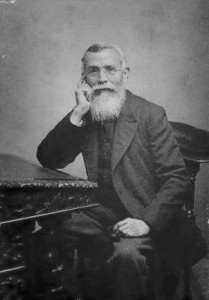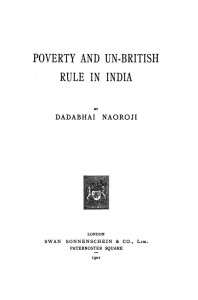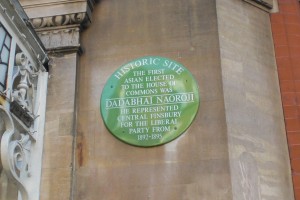The Indian Independence Movement is littered with historical giants, chief among them Gandhi, Ne hru and Jinnah. However, these figures largely enter the scene after the First World War. A major figure of the early Independence Movement was Dadabhai Naoroji.
hru and Jinnah. However, these figures largely enter the scene after the First World War. A major figure of the early Independence Movement was Dadabhai Naoroji.
As mentioned in the second article in this series, “Founding of Congress and the Start of the Independence Movement”, also found in the March 2017 issue of Paigaam, calls for more autonomy from the British predate the war. A towering and one of the most important figures of the early Independence Movement, was the Grand Old Man of India; Dadabhai Naoroji.
Naoroji was born in 1825 in Bombay to a poor Gujarati speaking Parsi family. Despite financial restrictions, he was highly educated, becoming professor of Mathematics and Natural Philosophy, and later professor of Gujarati at University College London in 1856.
During his various residencies in England he championed the rights of Indians and highlighted the brutality of British rule in India. He became a founding member of the London Indian Society and East India Association in 1865 and 1867 respectively as a result.
That the British governed India for its own good, an idea still prevalent today despite the overwhelming evidence that it wasn’t, was “purest romance” for Naoroji. Rather, he believed India was propping up Britain’s economic standing in the world, as India’s wealth wa s “drained” into Britain. To take the railways as example, Naoroji and others argued that if Britain was actually sincerely about economically developing India, investment would go into canal building, to irrigate rural areas. The railways, on the other hand, were built for strategic reasons cutting through unpopulated and infertile land, and not for the benefits of Indians.
s “drained” into Britain. To take the railways as example, Naoroji and others argued that if Britain was actually sincerely about economically developing India, investment would go into canal building, to irrigate rural areas. The railways, on the other hand, were built for strategic reasons cutting through unpopulated and infertile land, and not for the benefits of Indians.
He set out his “drain theory” in Poverty and UnBritish Rule in India, published in 1901. He argued that “the chief cause of India’s poverty, misery, and all other material evils is the exhaustion of its wealth…caused by the British rule.” He believed that Britain’s economic position in the world was being propped up by draining India’s wealth, taking away financial and material resources that would otherwise have been used to for India’s economic development.
In 1892 he took the Indian cause to heart of the British Empire. He became first Indian to be elected into the British Parliament, representing Central Finsbury, an event he himself called “unique” in his maiden speech to the Commons.
His lasting legacy is perhaps best encapsulated in the Indian National Congress, which he helped found in 1885. In 1906 aged 81, during his second presidency of the Congress (out of three), he called for “self rule” giving Congress a tangible political goal. Though “self rule” did not mean the complete break from British rule, as it became popularly known in later years, Naoroji’s speech in 1906 can nonetheless be seen as a turning point.

Dadabhai Naoroji is considered the Father of Indian Nationalism, and as a titanic political figure of the early Independence Movement, it is easy to see why. The affectionately called Grand Old Man of India died on June 30th 1917, at the ripe age of just 93.
